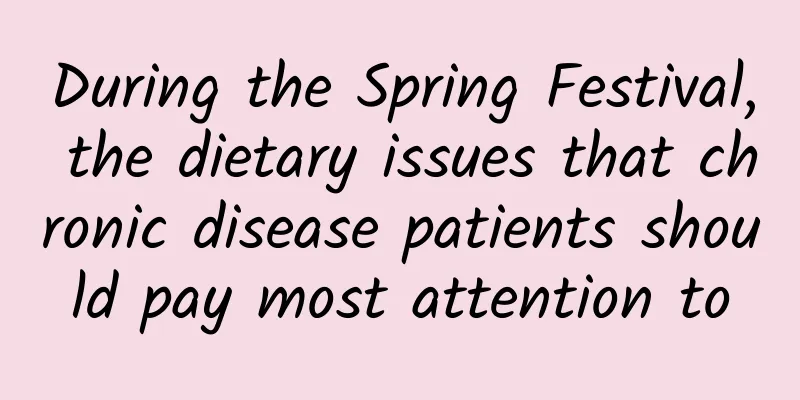Can I get pregnant with polycystic ovary?

|
Polycystic ovary is a common gynecological disease. Sometimes, if it is serious, it will affect women's fertility. Whether patients with polycystic ovary can become pregnant depends on the actual situation. They should follow the doctor's treatment advice to increase the chance of pregnancy. 1. Whether you can get pregnant if you suffer from polycystic ovary syndrome requires a specific analysis of the specific situation. Polycystic ovary syndrome may be the culprit for embryonic development arrest and miscarriage, but patients with polycystic ovary syndrome are not necessarily incapable of pregnancy. It’s just that some problems are more likely to occur after pregnancy, such as embryonic development arrest and miscarriage. The reason is that PCOS can cause endocrine disorders in patients, and endocrine disorders in pregnant women can make it difficult for the fetus to obtain sufficient nutrition in the early stages of development, which can cause the embryo to stop developing and cause miscarriage. 2. Of course, if the disease is cured well, then life can still be conceived normally. It is worth mentioning that some patients with polycystic ovary syndrome are particularly prone to pregnancy and are also prone to multiple births. This situation also requires extra caution. If the fetus reduction is not performed under the guidance of a doctor, each fertilized egg will be underdeveloped, leading to miscarriage. If you have polycystic ovary syndrome, you must do so under the guidance of a doctor if you want to get pregnant. 3. There are many reasons for infertility. Even if you have polycystic ovary syndrome, other infertility factors must be ruled out. First, we need to check whether the fallopian tubes are unobstructed and whether the uterus is normal. We also need to check whether there are any problems with the man’s sperm. If everything is normal, we can use ovulation-stimulating drugs to treat polycystic ovary syndrome based on hormone levels. However, the number of eggs a woman has in her lifetime is limited, so never induce ovulation blindly. Patients need to adjust their lifestyle reasonably, exercise more, eat more high-fiber vegetables, and promote metabolism, which are all conducive to conception. 4. The ovaries play a vital role in female reproduction, so ovarian health is directly related to female fertility. If there is an abnormality in the ovaries, it can easily cause ovulation problems. Patients with PCOS generally have symptoms of anovulation and find it difficult to become pregnant. But in fact, if the disease is not serious or is cured in time, the patient still has the possibility of becoming pregnant. 5. The chance of pregnancy with polycystic ovary is relatively low, but with the continuous advancement of endocrine knowledge and examination technology, the diagnosis rate of infertility caused by ovarian insufficiency has increased. Moreover, as long as patients with polycystic ovary syndrome actively cooperate with treatment, they can still become pregnant normally and there is no need to worry too much. Women with polycystic ovary syndrome who want to get pregnant must first make sure that their hormones are normal. Polycystic ovary syndrome does not necessarily lead to hormonal abnormalities. Some patients may have infrequent ovulation, not anovulation, but just occasional anovulation. If ovulation is infrequent, there is a chance of pregnancy. Generally, the chance of pregnancy after treatment of PCOS is 80%. Therefore, if patients with polycystic ovary syndrome want to increase their chances of pregnancy, it is best to seek treatment as soon as possible to avoid the eventual inability to become pregnant. |
<<: How to effectively enlarge breasts after weaning?
>>: What items are included in a gynecological examination?
Recommend
Why is my period always delayed?
What is the reason for delayed menstruation? The ...
How to deal with cat hair loss? What is the cause of dry cat hair?
Cats and dogs will start to shed their hair in au...
How long does it take to treat kidney yang deficiency in women?
Yin deficiency and hyperactivity of fire is a typ...
What is the method of applying mirabilite to the breast?
Glauber's salt is a widely distributed salt a...
Intestinal obstruction means the intestines are blocked? Does it require surgery?
Author: Jia Junfeng, Chief Physician, Beijing Reh...
Is gastric cancer already in the late stage when it is discovered? These people need early screening
Gastric cancer is a common malignant tumor. It is...
There are 6 nutrients that kidney patients on hemodialysis must supplement. Check to see if you have supplemented enough?
Long-term dialysis not only excretes waste from t...
How to get rid of sagging breasts?
Ladies, you must pay attention to breast protecti...
What diseases can be seen from the tongue coating
During the process of TCM diagnosis and treatment...
Can I have an abortion at three weeks of pregnancy?
If you do not want a child in the first three wee...
Treatment of uterine prolapse and vaginal relaxation
Uterine prolapse and vaginal relaxation are inevi...
What are the dangers of breast cysts?
I believe everyone has heard of diseases like bre...
Can I drink red wine during my period?
Some female friends like to drink alcohol normall...
How to treat delayed menstruation for 20 days
I believe that many female friends will encounter...
What causes women's lower abdominal pain?
When adolescent girls ovulate, the follicle ruptu...









